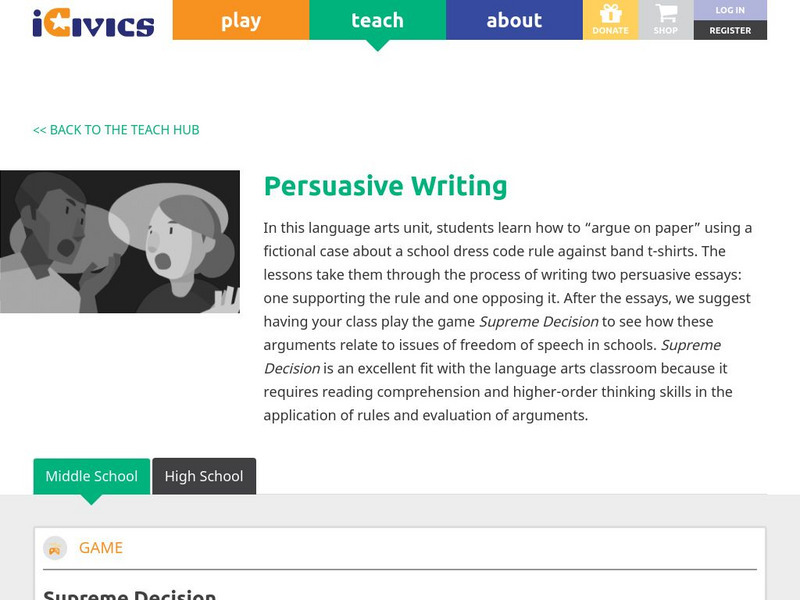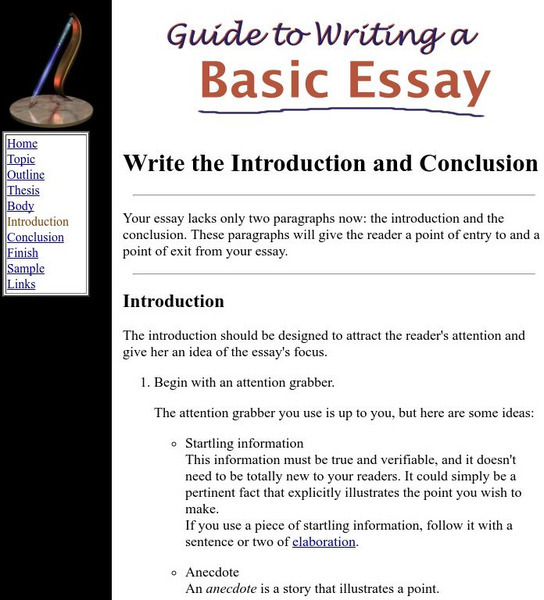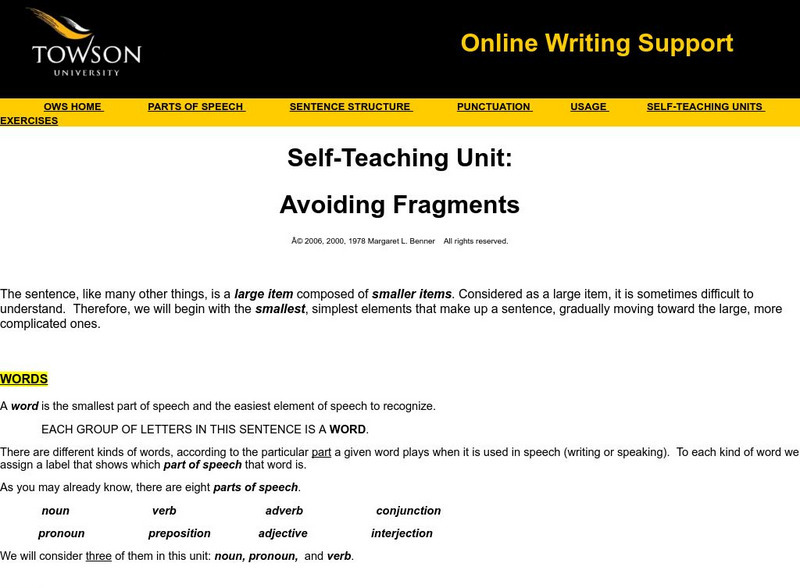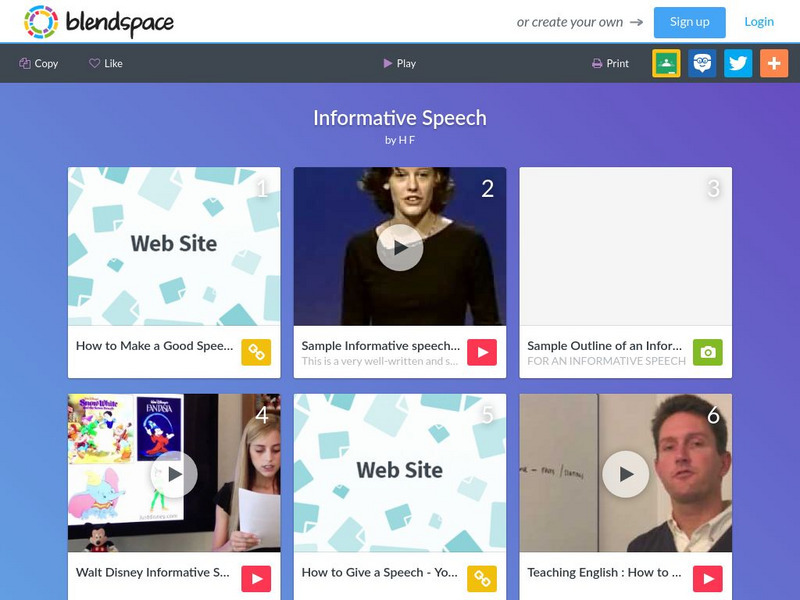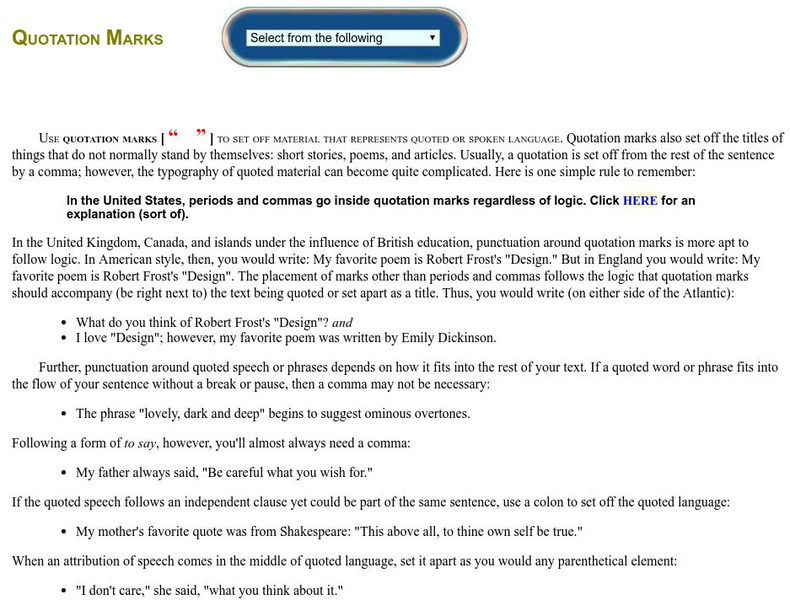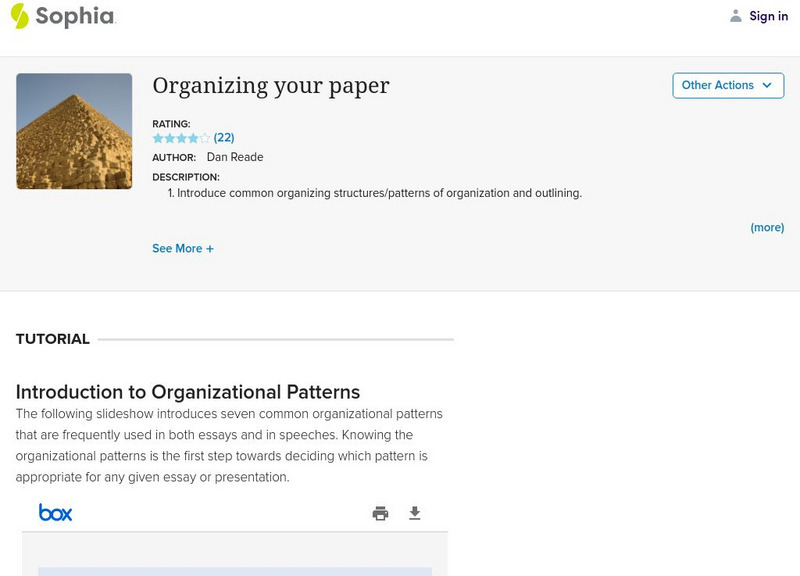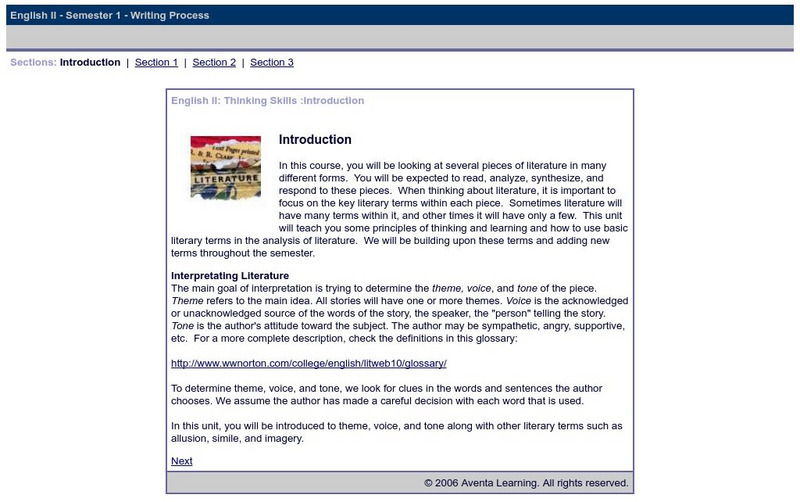wikiHow
Wiki How: How to Write a Persuasive Speech
Learn how to write a persuasive speech in three parts: Preparing to Write, Writing you Speech, and Delivering your Speech. A video [1 min, 43 secs] and writing tips are also provided.
Scholastic
Scholastic: Writing With Writers: Speech Writing
Learn steps from the experts on how to write and deliver a great speech. There are tips and graphic organizers for writing. The final step is recording your speech on the Radio Hotline. Listen to other student writing as well.
Wisc-Online
Wisc Online: Writing a Sentence Outline
In this learning module, students will learn how to write a sentence outline and then practice filling out an outline and writing their own outline for a speech.
Capital Community College Foundation
Guide to Grammar and Writing: Principles of Composition
If you are a teacher OR a student looking for a well-informed website on elements of the writing process, you are in luck! This site from the Capital Community College is very comprehensive and easy-to-navigate. From grammar basics to...
Other
Univ. Of Washington: How to Make an Outline [Pdf]
Information on how to make an outline. Provides a sample.
iCivics
I Civics: Persuasive Writing
In this library of mini-lessons, students will learn how to "argue on paper" or write persuasive essays using a fictional case about a school dress code rule against band t-shirts.
Other
Guide to Writing a Basic Essay: Write the Introduction
How to create a memorable introduction. This good advice can be applied to writing essays, speeches, anecdotes, and more.
ReadWriteThink
Read Write Think: Developing, Writing, and Evaluating Persuasive Speeches
Contains plans for four lessons that teach learners how to make and present strong persuasive speeches. In addition to objectives and standards, this instructional plan contains links to sites used in the lessons as well as assessment...
Lumen Learning
Lumen: Grammar: Introduction to Grammar
This lesson is an introduction to grammar including how academic writing and speaking is different than other types of writing and speaking. It includes the video "Introduction to Grammar" and a list of grammar learning objectives.
ReadWriteThink
Read Write Think: Creating a Persuasive Podcast
This lesson unit has students research a local, state, national, or international issue of personal interest and create and share a two-minute persuasive podcast presenting their research-based opinions on the topic. It includes tools...
Towson University
Towson University:online Writing Support: Self Teaching Unit: Avoiding Fragments
This module focuses on what makes a sentence including parts of speech, subjects and predicates, and phrases and clauses. It then explains fragments and how to avoid them. It offers links to several exercises and a post-quiz.
University of Oregon
University of Oregon: Diamante Poems
Do you know how to write a diamante poem? Check out this site to learn how to accomplish this task. This site features a lesson plan for writing poetry.
Wisc-Online
Wisc Online: Concluding Your Speech
The conclusion of a speech is your last chance to stress your main idea and purpose. How can you make it memorable? Follow these guidelines to write a strong conclusion to a speech.
TES Global
Blendspace: Informative Speech
A nine-part learning module with links to websites, videos, and images to use while learning how to write and deliver an informative speech.
Capital Community College Foundation
Guide to Grammar and Writing: Quotation Marks
Use this site to learn how to properly use quotation marks in stories, poems, articles, and speeches.
ReadWriteThink
Read Write Think: Persuasion Rubric
A printable four-point rubric to use when assessing a persuasive piece with a focus on organization, a goal or thesis, reasons/support, audience, word choice, visuals/delivery, and grammar/usage/mechanics. Directions on how to use this...
ReadWriteThink
Read Write Think: Oral Presentation Rubric
A printable four-point rubric for use when evaluating oral presentations. The rubric focuses on the specific areas of delivery, content and organization, and enthusiasm and audience awareness. Directions on how to use this rubric as well...
Writing Fix
Writing Fix: An I Pod Inspired Poetry Lesson: Paradox Poetry
Jack Johnson's "Inaudible Melodies" creates an interesting paradox of how society perceives itself versus the reality of how society really behaves. After listening to a second song using paradox in order to further understand the...
Reading Rockets
Reading Rockets: Reading Basics: Sounds of Speech
Sounds of speech are the sounds that make up our oral language. Children must understand how speech sounds work to be ready for instruction in reading and writing. To learn more about sounds of speech, browse the articles, parent tips,...
PBS
Pbs Learning Media: Writing in u.s. History: Shaping the Postwar World
Consider how U.S. foreign policy changed in the aftermath of WWII, and analyze the philosophical, geopolitical, and economic factors that influenced these changes. In this interactive lesson from WGBH, students develop a written argument...
Leaf Group
E How: So You Wanna Deliver an Effective Speech?
An article which presents instruction and advice for every step of the speech writing process. Topic areas covered include: knowing your audience, organizing your speech, writing your speech, how to practice correctly, and handling...
Sophia Learning
Sophia: Organizing Your Paper
Two slideshows and a screencast on organizational patterns used when writing essays and speeches. The first is a 20-slide presentation explaining the seven most common organizational patterns used in writing: time sequence, spatial,...
University of Pennsylvania
University of Pennsylvania: The Thesis Statement
This site has an examination of five different thesis statements with examples of how to write each of the statements.
Department of Defense
Do Dea: Thinking Skills
In this self-guided course, you will be looking at several pieces of literature in many different forms. This unit will teach you some principles of thinking and learning and how to use basic literary terms in the analysis of literature....
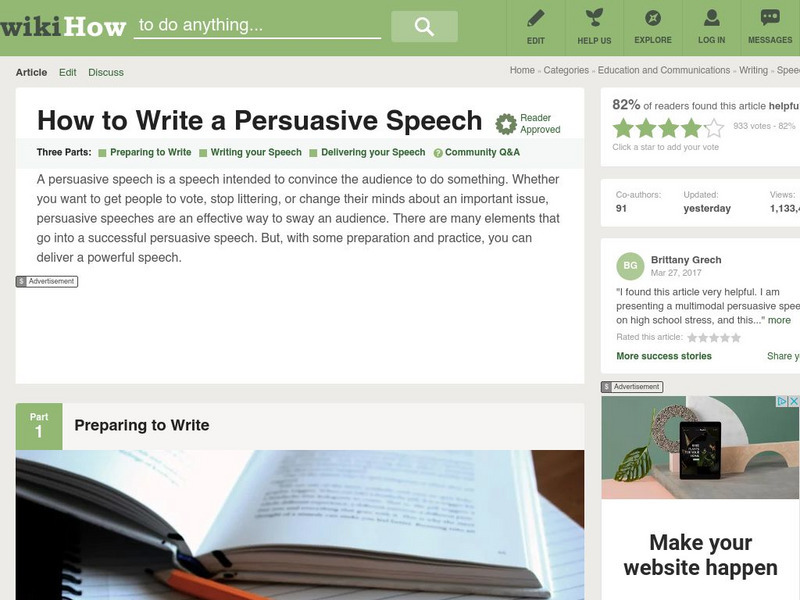
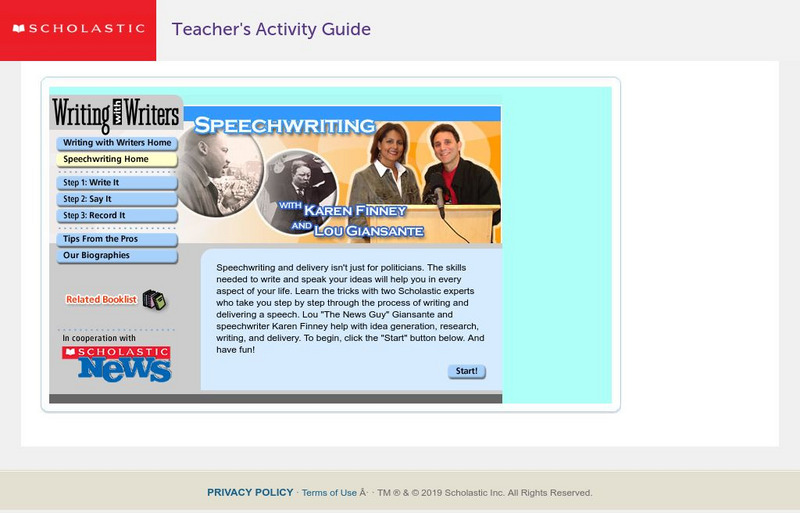
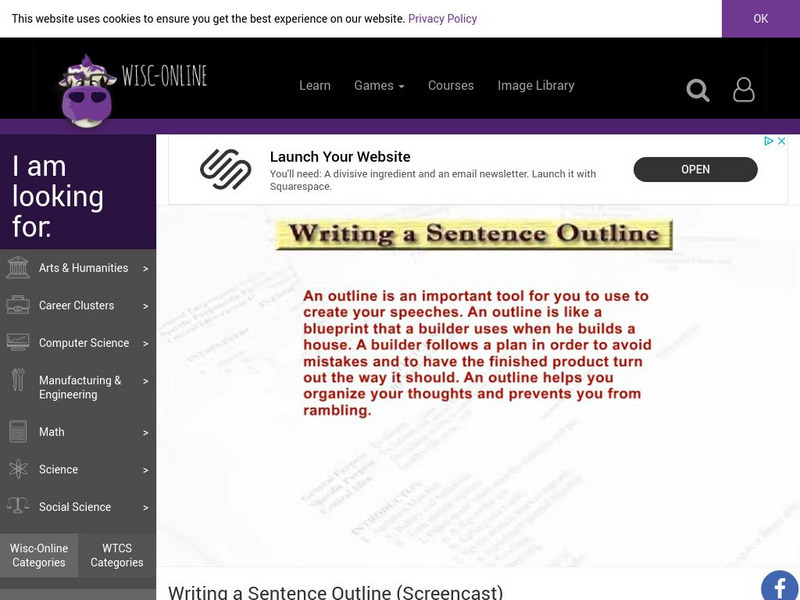

![Univ. Of Washington: How to Make an Outline [Pdf] Handout Univ. Of Washington: How to Make an Outline [Pdf] Handout](https://d15y2dacu3jp90.cloudfront.net/images/attachment_defaults/resource/large/FPO-knovation.png)
